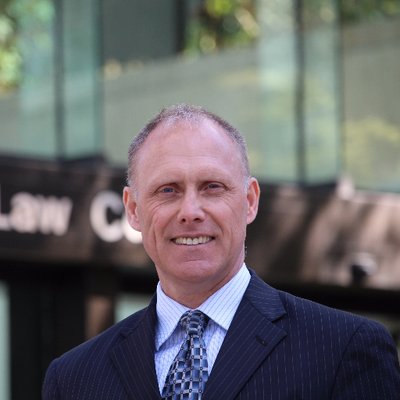Trinity Western’s ‘torturous’ battle for freedom
Trinity Western University (TWU), a small private Christian university in Langley, BC, has been the epicenter of a Canadian cultural battle because of its code of conduct that every student and faculty member is to sign. The code requires abstinence from sex outside of traditional (one man, one woman) marriage. In the 1990’s the British Columbia College of Teachers (BCCT) refused to accredit TWU’s education degree because of the code. BCCT argued that TWU teaching grads would discriminate against sexual minorities in the public-school system. The Supreme Court of Canada (SCC) ruled in 2001 that there was no evidence to support BCCT’s claim. TWU’s education degree was then accredited. The SCC noted that TWU was not for everyone since it catered to the evangelical Christian community and that
“The diversity of Canadian society is partly reflected in the multiple religious organizations that mark the societal landscape and this diversity of views should be respected.”
To rule against TWU because of its code, the SCC said, would lead to the BCCT denying teachers who are members of churches that hold the same view as TWU. Further, the SCC noted that TWU is not a state actor and therefore not subject to the Canadian Charter of Rights; and TWU is exempt from the BC human rights legislation as a religious institution.
In 2012, TWU filed an application to the Federation of the Law Societies of Canada (Federation) for a law school. The proposal was unique in that TWU law graduates would be “practice ready” in the same way medical school grads were practice-ready to go work in hospitals. Opposition from the legal profession was intense. The Canadian Council of Law Deans, the Canadian Bar Association, legal academics and law students called upon the Federation to deny the TWU application because of the discrimination against LGBTQ+ sexual minorities. Major newspapers such as The Globe and Mail wrote opposition editorials. So fierce was the demand that the Federation set up a special ad hoc committee to investigate the arguments. Finally, on December 16, 2013, the Federation approved the TWU School of Law, noting there was nothing against the public interest. The TWU program was academically sound. Two days later the BC Ministry of Advanced Education gave the green light to TWU. However, the opposition became more strident.
Academics and advocates began a fierce campaign against TWU calling on the law societies to have the “courage” to reject the Federation’s decision and do its own independent investigation. The repeated arguments against TWU were:
- There should be no discrimination of anyone going to law school;
- TWU SCC 2001 is no longer good law as marriage has been redefined;
- Religious institutions in the “public sphere” must abide by public norms;
- For a law society to approve TWU would be to “tacitly” agree with TWU’s policies;
- The TWU discrimination is “hurtful”;
- TWU’s position violates Charter “values”.
Three law societies ultimately decided not to accredit TWU. The remaining law societies either decided to accept the Federation’s decision or held their peace until the SCC ultimately decides the matter. The Law Society of British Columbia (LSBC); The Law Society of Upper Canada (LSUC); and the Nova Scotia Barristers’ Society (NSBS) all refused to accredit TWU. Many benchers noted that since 2001 “marriage” was re-defined in Canada and that required a change in the law.
The LSBC was a tortuous affair because it first decided to accept the Federation’s decision in April 11, 2014 but the anti-TWU advocates engineered a special meeting in June 2014 and demanded the LSBC reject the Federation’s decision. A referendum was called and 70% of the membership voted against TWU and then the LSBC rejected TWU’s accreditation.
TWU took the law societies to court for judicial review. TWU and interveners argued:
- TWU is not subject to the Charter or the human rights legislation;
- TWU, as a religious university, has the right to practice traditional marriage;
- TWU, does accept and welcomes LGBTQ+ students but require them to sign the code;
- Private religious institutions are not required at law to give up their faith in the public;
- TWU SCC 2001 precedent is still good law.
TWU won its cases in all levels of court in Nova Scotia and British Columbia but lost both levels of court in Ontario. The Supreme Court of Nova Scotia (NSSC) and the BC Court of Appeal (BCCA) decisions were particularly positive. The NSSC pointed out that the state does not have a secular mission to require religious institutions to adopt secular norms. “The Charter is not a blueprint for moral conformity,” said Justice Campbell, of the NSSC. The BCCA noted that there is no right to not be offended in Canada; and that any discrimination is minimal.
In Ontario, the courts noted that the LSUC could not be forced to give its tacit approval to the discriminatory views of TWU. Further, TWU’s view on marriage is discriminatory and, “it hurts.” The Nova Scotia Barristers’ Society decided not to appeal their loss however, the BC Law Society has appealed. TWU has appealed the Ontario decision. The Supreme of Canada will hear both appeals on November 30 and December 1.
For further academic discussion on this case see:
- Barry W. Bussey, The Charter Is Not a Blueprint for Moral Conformity
- Barry W. Bussey, Rights Inflation: Attempts to Redefine Marriage and the Freedom of Religion: The Case of Trinity Western University School of Law
- Barry W. Bussey, The Legal Revolution Against the Place of Religion: The Case of Trinity Western University Law School
In accordance with s 6(5) of the Marriage Law Survey (Additional Safeguards) Act 2017, this communication was authorised by Michael Kellahan of Sydney for Freedom for Faith.


